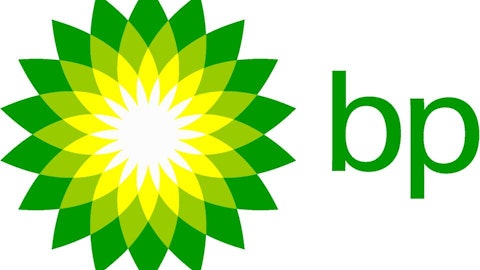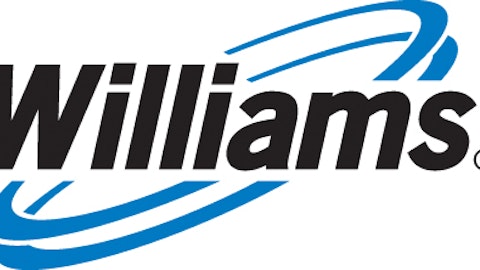With the markets focused on short-term questions regarding U.S. quarterly growth and developments in Europe, many investors are thinking several years out and looking for companies with the potential to make large gains. Here are five energy stocks that we think have either become detached from their fundamental long-term values- and should return to them over time- or have growth prospects that are not appreciated by the market:
BP Plc (NYSE:BP): Investor sentiment runs hard against a company still tarnished by the Deepwater Horizon accident in the Gulf of Mexico, but the effects of the incident have fallen short of the most pessimistic predictions and the company should not be dismissed offhand- after all, an investor who had bought into Exxon Mobil after the Exxon Valdez would be up 660% today, about twice the return of the S&P 500. And BP looks quite appealing to a value investor. Its trailing price-to-earnings multiple is 5.2, with forward multiples rising to 6.8; enterprise value is under four times trailing EBITDA. The stock also pays a 4.6% dividend yield; with interest rates where they are, investors may as well be getting a free bond along with their cheap stock. BP is a textbook value stock and leads the ten most popular energy stocks among hedge funds among stocks which are still traded in the market (El Paso’s acquisition has since been completed).
Transocean (NYSE:RIG): Environmentalists rip Transocean as BP’s “partner in crime” for the Deepwater Horizon incident, but they aren’t Transocean’s customers- oil majors are, hiring the company’s rigs for deepwater drilling services. SAC Capital Advisors, managed by Steven Cohen, piled into Transocean in the first quarter of 2012 and reported owning 3 million shares, making the stock one of the fund’s top ten 13F holdings (see the rest of Steven Cohen’s stock picks). This is a riskier stock than BP, with cheaper onshore drilling entering a boom phase in the U.S. (still the top consumer of oil in the world) and bringing offshore drilling into a lull worldwide, but we expect oil demand to continue to grow in the future and eventually push oil companies offshore again. Analysts expect RIG’s losses to reverse in the next year and the forward P/E is 9.
Exxon Mobil (NYSE:XOM): Why not? The oil supergiant has been passed by Apple (NASDAQ:AAPL) as the top company by market cap but its equity is still worth about $400 billion; some of the other stocks on this list are risky, but Exxon Mobil is not going anywhere. The company has moved aggressively into U.S. natural gas, which is increasing its role in electricity production, as well as maintaining its market leadership in oil. XOM joined BP on the list of the ten most popular energy stocks among hedge funds, likely aided by earnings multiples in the 10-11 range. This makes it a fairly cheap stock for a worldwide leader in energy. Exxon Mobil also pays a dividend yield of 2.7%.
Continental Resources (NYSE:CLR): As mentioned, onshore drilling is booming. Shale oil production in North Dakota, Texas, Colorado, and other areas is dramatically increasing (unemployment in North Dakota is 3% thanks to the Bakken Shale play), and there are other potential fields yet to be tapped. Questions have been raised regarding how long shale oil wells will produce, but unless the most pessimistic forecasts come into play Continental, a leader in shale, stands to make big gains. Between 2009 and 2011 the company’s revenue increased by over 160%. The market priced in much of the company’s future growth, but we see a forward P/E under 17 and a five-year PEG ratio less than 1 and believe the stock is still being underappreciated. Read more about Continental and billionaire Jeff Vinik’s investment.
Chesapeake (NYSE:CHK): Chesapeake is another risky stock which has been battered by recent events. In this case, questions about poor corporate governance and transparency began to drive down the stock price. Then questions began to be raised as to whether Chesapeake could successfully sell enough of its assets to meet its cash needs for the year, followed by suggestions that the company would be forced to accept fire-sale prices. The company has rebounded from its lows, partly aided by Carl Icahn’s vote of confidence in its fundamental value (read more about Icahn’s activity at Chesapeake), though it has yet to regain its previous price levels. CHK currently trades at seven times trailing earnings, and less than its book value.






